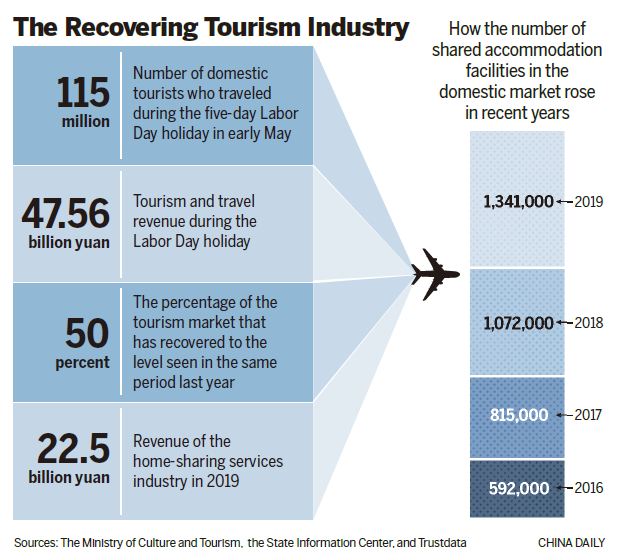Helping hosts to serve guests again


Since the outbreak, the company announced an investment of $10 million to support Chinese hosts during the local tourism industry's recovery period in the coming years. It also rolled out several actions that were designed to help hosts deal with the financial losses and tide over difficulties due to cancellations.
It launched a service fee cap promotion for eligible weekly and monthly rentals, as well as several online training programs that have reached at least 10,000 people and helped hosts build resilience and learn practical skills that can be applied during the outbreak.
In a bid to ease the immediate pressure on the cash flow of hosts, it introduced the early payout program.
For certain reservations, Airbnb would advance 50 percent of the actual amount payable to eligible hosts, helping them to generate cash up to two months ahead compared to the original payout schedule.
Data from the State Information Center, a government think tank, showed that the revenue of the homestay segment was 22.5 billion yuan last year, up 36 percent year-on-year. It is forecast that this year, the number of tenants is likely to exceed 100 million and the number of shared homes will exceed 6 million.
Tujia has provided 200,000 yuan in epidemic-related insurance for hosts who list their homestay properties on its platform. The insurance cover is free of charge through cooperation with Ping An Insurance Group.
It also grants membership identity and more rights for hosts who have reduced or waived guest rental fees during the epidemic period. The measure is aimed at protecting the rights of landlords and their family members.
"There is no doubt that pent-up travel demand from Chinese tourists is being released step by step," said Han Mengying, an analyst from market consultancy Analysys, adding that compared with hotels, the recovery of the vacation rental market is slower due to its nonstandardized management method and community-based services.
Han said another uncertainty lies with hosts, who may face a shortage of funds and exit the industry due to the epidemic. "These supportive measures for landlords are very necessary to maintain the stability of supply, and also a key step to restore market confidence."




































